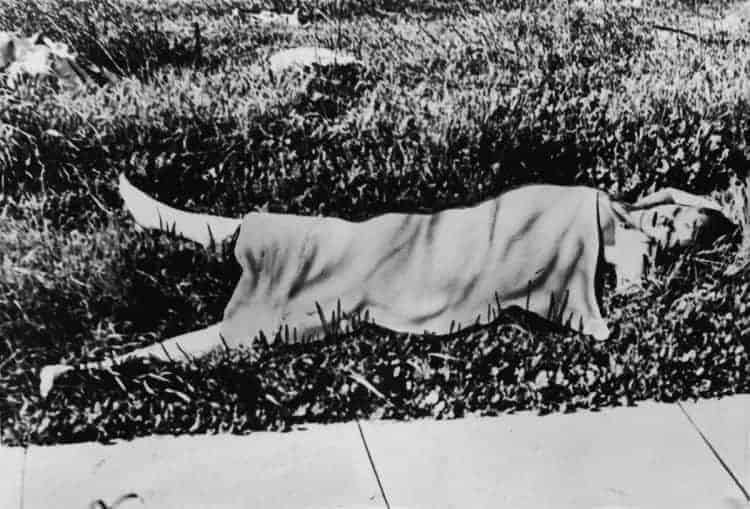The murder of Elizabeth Short, nicknamed the Black Dahlia, is one of the oldest and most compelling unsolved cases in the history of Los Angeles. The aspiring actress was just 22 years old and worked as a waitress in the City of Angels. Her brutal murder shocked the city, and despite a detailed investigation, none of the hundreds of suspects were ever charged.
Black Dahlia’s Early Life
Short was born in Boston, Massachusetts in 1924 and suffered from asthma and bronchitis. As a result, her mother sent her to Florida when she was 16, where she would spend the next three winters. She moved to Vallejo, California with her father at 19, but after an argument, Short went her own way. The teenager was arrested in Santa Barbara in September 1943 for underage drinking, and the authorities sent her back to her hometown.
She returned to Florida and fell in love with Major Matthew Gordon, a U.S. Army Air Force Officer, but after proposing, the man died in a plane crash less than a week before the end of World War II. A heartbroken Short moved to L.A. in July 1946 to visit another army officer she knew from her time in Florida. Like most aspiring actresses, Short worked as a waitress to make ends meet while waiting for her big break. It never came because the unfortunate young woman was brutally murdered in January 1947.

Death & Sensationalism
A woman named Betty Bersinger discovered the naked body of Short in a vacant lot in Leimert Park in Los Angeles on January 15, 1947. It was a particularly gruesome murder, as the victim was drained of blood and was severed at the waist. The killer had viciously slashed, but also cleaned the corpse. One of the detectives at the scene, Brian Carr, commented on the brutality of the slaying and said he couldn’t imagine anyone doing such a thing to another human being.
Newspapers such as the Los Angeles Examiner helped the case gain notoriety by sensationalizing the murder. Part of the media campaign involved smearing the young victim’s reputation with lies and half-truths. For example, Short wore a black tailored suit when last seen; the Examiner said she wore a sheer blouse and tight skirt. The media also gave Short the Black Dahlia nickname, and described her as someone that prowled Hollywood Boulevard for men.
Misconception surrounded the case from the start, especially over the details of Short’s life. True crime books suggested she lived in L.A. at various times during the 1940s, but there is no evidence of this. Indeed, there are accounts of her residing in Florida and Massachusetts for most of the period from 1943 to 1946. Suggestions that she was a call girl or even a prostitute are almost certainly fiction.
Another rumor involved Short being pregnant at the time of her death; again, this is complete nonsense. The media coverage surrounding the case made it difficult for police to conduct an effective investigation. This is clear by the number of people who came forward to falsely confess to the Short murder.

